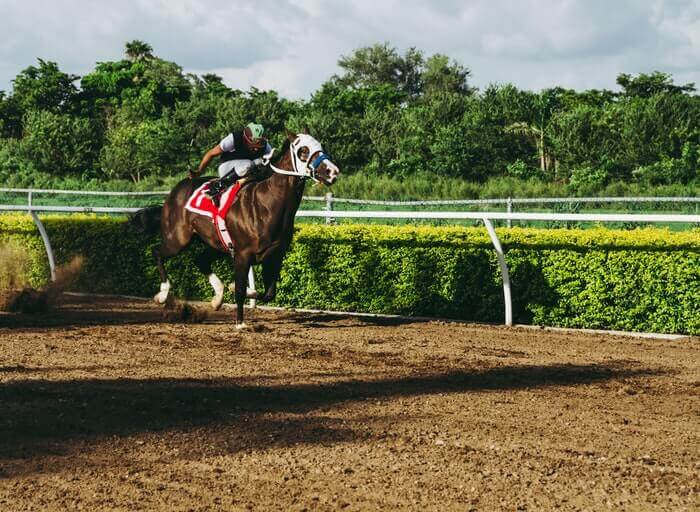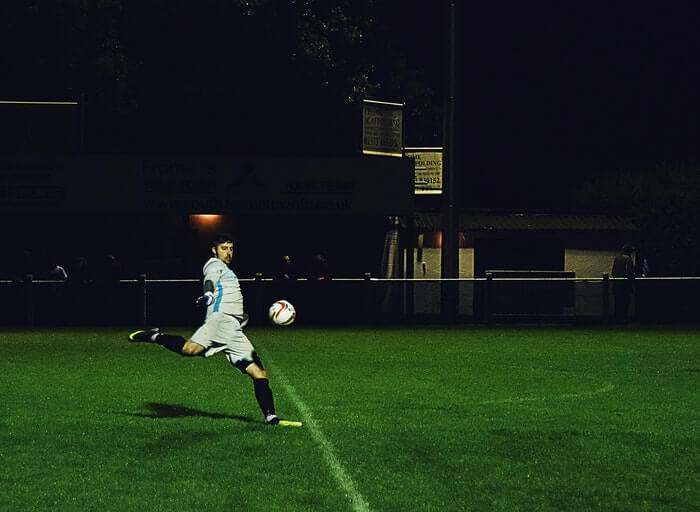The number of participants in any game you bet on plays an important role. In tennis, boxing, or snooker, for example, you only have one winner and one loser in a match. Once you get to know the players, you can go and place your win bet. If your selection wins, your bet pays a return. If not, you lose your stake. Simple as that.
However, in some sports, such as horse racing, there can be dozens of participants, and not only those who finish in the first position count as winners with bookmakers. There are other bet types that enable you to bet on your selection winning and placing at the same time. These are known as E/W bets.
What Is an Each-Way Bet?
We’ll take horse races as an example since this is the sport most commonly associated with this type of bet. Essentially, with an E/W bet, you are betting on two things simultaneously:
1) That the horse you selected will win
2) That the horse will finish in the first, second, third position, or even fourth or fifth (the number of places that are paid depends on the number of participants in the race, more about this later)
As you can see, an E/W bet is a combination of a win bet and a place bet. The place bet may differ depending on the race and the bookie offering the each-way bet on horse racing. If four or fewer horses compete, you’ll only be able to place win bets. If there are five, six, or seven horses, bookies will offer payouts for the first and second place. In events where there are eight or more runners, the first, second, and third place are paid.
Some bookies will offer more paid places, up to sixth place. The offer typically depends on the size of the event, the number of runners, and the odds offered by other bookies. That’s why it usually pays off to shop around for better horse racing odds when looking to place each-way bets on major events.
On What Events Can You Make an E/W Bet?
As mentioned, E/W bets are typically associated with horse racing. However, you can place these bets on tournament-based competitions in golf, football, greyhound or motor racing, or any other sporting event offered by your bookmaker. With so many online bookmakers available these days, you’ll even be able to place this type of bet on reality TV and other events unrelated to sports.
How Do You Make an Each-Way Bet?
Now, no matter if you want to bet on golf, horse races, or any other event on offer at a brick-and-mortar or online bookmaker, the process of making a selection and betting each way is fairly similar. For simplicity’s sake, we’ll stick to horse racing.
First of all, you need to pick the race you want to bet on. Online, you’ll probably find a designated tab for daily horse races. Each race comes with additional information you might find helpful, such as the ground condition and race length. You’ll also see the bookmaker’s terms and offers for a particular each-way horse bet, such as the number of paid places and any special offers.
Once you’ve chosen your race, it is time to select your runner. You’ll typically be able to see the horses’ names, trainers, and jockeys, the shape the runners are in, and how much weight they’re carrying. You’ll also be able to see the racing odds – look for those greater than 5.00.
Finally, you’ll be able to make your bet. One of the essential each-way bet rules is that your initial stake is doubled. For example, if you bet £5 each way, that’s £5 toward the win bet, and another £5 toward the place bet. On your bet slip, you’ll be able to see your potential returns. However, the actual payout will depend on the race outcome – if the horse wins, you’ll get the full amount. If it finishes in one of the paid positions but doesn’t win, only your place bet will pay out a return.
How To Calculate an Each-Way Bet Payout
Wondering how much you’ll take home if you win an E/W bet? Calculating this is relatively simple but depends on the outcome of the race.
Let’s say you’ve placed £5 on a runner with odds of 21.00.
If the horse wins, you’ll be entitled to £5×21, plus your initial bet of £5, which sums up to £110.
Next comes your place bet. To understand how much you’ll earn based on the place your runner finishes in, you should look at the bookie’s terms and conditions. Most will pay out 1/4 for races with five to seven runners and 1/5 for races of eight or more.
How does an each-way bet payout work, then? Let’s say your bookmaker pays out 1/4 of the odds for place bets. The place bet winnings can be calculated as follows: Divide the 21.00 odds with 4, which sums up to 5.25. Then multiply this sum with your initial bet of £5, and you’ll get £26.25. Add your initial bet, which you’ll win back, and that’s £31.25.
So, if your horse wins, you win both bets, a total of £141.25! If your horse only places, you can expect to get just £31.25. Still more than £10 you staked, so it was still worth it.
Now that we’ve covered the basics, let’s check some of the more advanced E/W bets you can try out.
Multiple Each-Way Bets
With many bookmakers, you’re not limited to the basic E/W bet. You can also take advantage of its variations to win big. Multiple each-way bets are a great way to maximize your returns. Regardless of the number of selections, they all consist of two bets: one bet for all your selections to win and one bet for all your selections to place. So, if you place three each-way horse racing bets, and all three of your selections win, you win both parts of your E/W bet. However, if one of those just places and the other two win, the win bet is void, and only your place bet will pay a return.
Keep in mind that although two place bets mean potentially higher payouts, they also carry more risk. If any of your selections fails to either win or place, the whole bet will be void.
Each-Way Double and Each-Way Treble
A multiple each-way bet on two selections is called an each-way double. If both of your selections win, you take home a hefty sum. If one wins and other places, you’ll only win your place bets. Of course, if one fails to win or place, you go home empty-handed. The same goes for trebles, but here, you have yet another selection added to the bundle, increasing both the risk and your potential returns.
Each-Way Accumulator
Each-way bets on four or more selections are called each-way accumulators. Here, the bettor is free to choose the number of selections.
Conclusion
All in all, an E/W bet is a good choice if you’re not betting on the favourite on the market. If you are, it’s highly unlikely you’ll find odds that amount to or are higher than 5.00. Any odds lower than 5.00 render an E/W bet pointless since you’d only be minimising your losses instead of covering your win bet stake. In such cases, going for a simple win bet makes more sense.
Another thing to pay attention to is the field size. In horse races, the field size can vary from just a handful of participants to over 40 in high-profile races such as the Grand National. And while an eight-runner and 15-runner race will typically both have the same number of places that pay a return (the top three) in an each-way bet, in the former, your selection would only have to beat five horses to place, while in the later, it would have to beat 12.
FAQ
Is each-way top 3 or 4?
The answer to this depends on both the bookmaker of your choice and the number of participants in the race. Typically, three each-way places are offered for races with eight participants or more, while the fourth place is offered only for handicap races with 16 or more runners.
How does an each-way bet work in football?
Since in a football match, unlike in a horse race, there are only two participants, E/W bets are only possible for football tournaments such as, for example, the World Cup, where clubs can win the first, second or third place. These E/W bets work the same way as in horse racing.
What does placing a bet each way mean?
This means you’re essentially combining two bets: one for your selection to win and the other for it to finish in one of the top three spots. Since there are two parts of your each-way bet, your stake is doubled.


